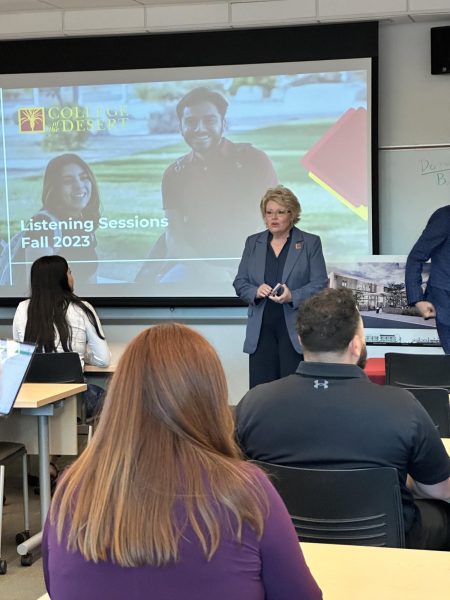College students feel impact of Coronavirus
According to the Center for Disease Control and Prevention (CDC), the U.S confirmed the coronavirus’s first case on Feb. 26 and 28. According to Chinese officials, the CDC said the U.S. Coronavirus, also known as COVID-19, was identified in Wuhan, China, on Dec. 19, 2019. While many of the people impacted most by the disease include the elderly and those with underlying health issues, many young people are also contracting the disease and say it’s tough. Some experience more severe symptoms, while others are asymptomatic. Students at College of the Desert who tested positive for COV-19 share their experiences.
Naidelyn Reyes, first year at College of the Desert, said she got it from her mother. Reyes said she was asymptomatic at the beginning, “I had no sense of taste for at least five days, and the majority of the time, I was really weak, I had no effort of doing anything. Luckily I was only sick for five days, but my family and I still stayed at our house for the fourteen days.”
Anthony Gonzalez, a second-year at College of the Desert, said his symptoms were more serious, “I believe I came in contact with the virus when I was at work; before I got tested for the virus, I kept coughing for three days straight each day it worsened. Finally, when I got a fever, I decided to get tested, which days later it came out positive, and from then on, I isolated myself from everyone except my wife, who only brought me food or drinks; I was isolated in the room for fourteen days (two weeks). It was tough. I only saw my two-year-old son through FaceTime.”
Beatrice Chavez, a second-year at College of the Desert, said, “I don’t recall when I got the virus, but I do believe I got it at work. When I first started feeling ill, I thought it was just the regular flu, I had body aches, cough, fever, and weakness. One day I got a call from work, and they told me a coworker of mine tested positive for the virus, and I should get tested. After a week of feeling ill, I went to get tested. Sure enough, it came back positive. I couldn’t return to work after I got retested and after the two weeks, which each time it came back positive, it took a month for the virus to be completely out of my system even though I was already better.”
According to the California Health Department of Public Health, there have been 787,470 positive cases in California. This has been updated on Sept. 22, 2020. There has also been a total of 15,204 deaths in the state.
COVID-19 had a major impact on the individuals who had the virus and the family members who passed away from the virus. The state of California has taken precautions, and our president has helped and continues to help with the supplies we need, and no catastrophes may occur with a supply shortage. According to the Center for Disease Control and Prevention (CDC), on Feb. 26 and 28, 2020, the U.S confirmed the coronavirus’s first case on Feb. 26 and 28.
The CDC explains the U.S community transmission in late January or early February, only after a single importation from China. According to Chinese officials, coronavirus, also known as COVID-19, was identified in Wuhan, China, on Dec. 19, 2019.
So what should people know about this disease? According to the Center for Disease Control and Prevention, the symptoms is as follows but does not include; this will soon be updated once they learn more about the virus:
- Fever or Chills
- Cough
- Shortness of breath or difficult breathing
- Fatigue
- Muscle or body aches
- Headache
- New loss of taste or smell
- Sore throat
- Congestion or runny nose
- Nausea or vomiting
- Diarrhea
According to the Department of Health and Human Services-USA, if you show symptoms or have tested positive for COVID, you should prevent the spread of COVID-19.
- Stay home- Most people with Corona have mild illnesses and can recover without medical care.
- Take care of yourself- Get rest and stay hydrated, take store-bought medications, such as acetaminophen.
- Stay in touch with your doctor- Get medical care if you have trouble breathing or have any other emergency warning signs.
- Avoid any public transportation, such as taxis and buses.
- Make sure you separate yourself from other people, and this includes your pets. If possible, stay in a specific bedroom and also use a separate bathroom. If you must be around others in your household, wear a mask. Use individual dishes, drinking glass, cups, eating utensils, towels, and bedding.
Students should seek for medical attention when someone is showing these signs:
- Trouble breathing
- Persistent pain or pressure in the chest
- New confusion
- Bluish lips or face
- Inability to wake up or stay awake
The Department of Health and Human Services reminds you this is not all the possible symptoms. For more information about COVID-19 and how to get tested, visit www.cdc.gov








